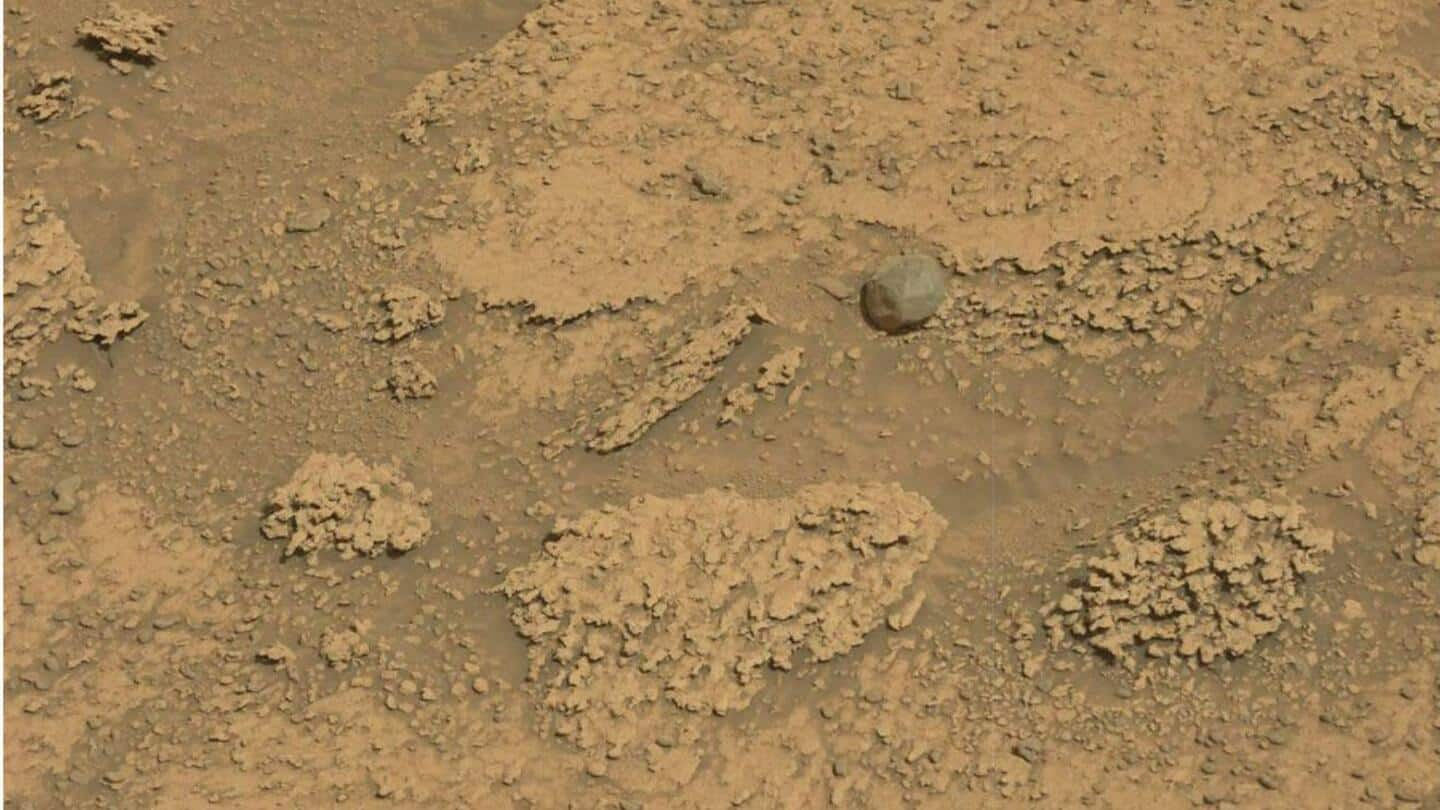
NASA's Curiosity Rover finds an 'unusual gray rock' on Mars
What's the story
NASA's Curiosity Rover stumbled upon "unusual gray float rock" on Mars and it is believed to come have come from elsewhere. As per scientists it could either be a chunk of a meteorite or could be a piece of debris material from Mount Sharp in the Gale Crater. Interestingly, the rock resembles previous meteorites found on Mars that have a dark, lustrous appearance.
Context
Why does this story matter?
NASA's rovers on Mars tend to have a liking for spotting mysterious objects, which more often than not do belong to the red planet. Last year in June, the Perseverance Rover spotted something unusual—a silver object which turned out to be a part of the rover itself. Talking about Curiosity, this isn't the first time that the 10-foot-long explorer has spotted meteorites.
Official words
The gray rock might be a meteorite sample
"This is an unusual grey float rock which may be a remnant of material higher up Mount Sharp or maybe a meteorite," wrote Catherine O'Connell-Cooper, a planetary geologist, in a blog post. "We have analyzed a few meteorites over the past 10 years, but they are not so abundant that we fail to get excited at the thought of a new one!"
Discovery
Where was the rock found?
The Curiosity Rover is currently probing the Gale Crater region, traversing the slopes of the crater's enormous central mountain called Mount Sharp. An area of interest at this location is a region of a geologic formation called the Marker Band. And right below this Band was where the unidentified gray rock was spotted by the Rover, according to the space agency.
Previous meteorite samples
Curiosity rover has previously spotted an iron-nickel meteorite
In 2016, the Curiosity Rover spotted a globular, golf-ball-size object which was confirmed to be a rare iron-nickel meteorite, and was named "Egg Rock." It is believed to have been a part of an asteroid. Researchers are interested in studying how exposure to Martian conditions affects these meteorites, in comparison with how conditions on Earth might affect them.
Information
Curiosity Rover reached Mars in 2012
The Curiosity Rover landed on Mars in August 2012. It carries the biggest and most advanced scientific instruments ever sent to the red planet. Its main goal was to find out if Mars was ever habitable to microbial life.